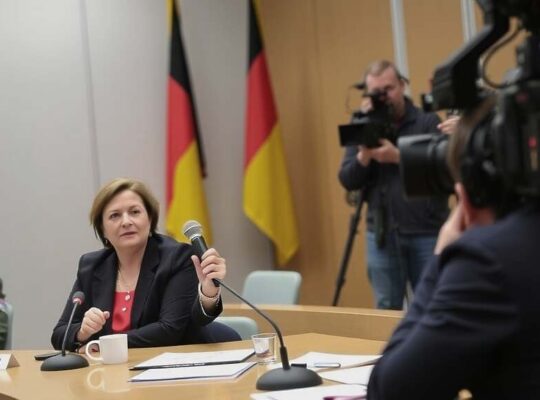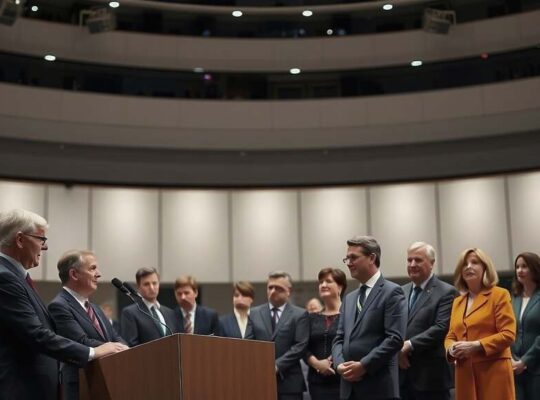A stark warning has been issued by the mayors of all 13 German states’ capital cities, demanding a fundamental restructuring of municipal finances in a joint letter to Chancellor Friedrich Merz (CDU) and the state premiers. The correspondence, revealed in a report by “Süddeutsche Zeitung”, highlights a rapidly widening gap between municipal incomes and expenditures, threatening the operational capacity of local governments across the nation.
The mayors attribute the escalating crisis to a combination of factors, notably the rising costs associated with social services. Critically, they point to policy decisions, particularly the introduction of the Deutschlandticket – a subsidized public transport initiative – as contributing significantly to the underfunding of municipal budgets. The initiative, while popular, has placed an undue financial burden on cities already struggling with limited resources.
“The federal government must finally understand: municipalities are absolutely at the limit of their capabilities. We can’t go on like this” stated Stuttgart’s Mayor Frank Nopper (CDU), the driving force behind the unified appeal. His words reflect a growing sense of desperation amongst local leaders.
The core of the mayors’ demand centers on the principle of “He who orders pays” a long-cited but frequently ignored concept in the relationship between the federal government and municipalities. They are calling for a proactive approach, insisting that any legislation potentially impacting municipal resources must include a complete and appropriate compensatory package from the outset.
Beyond immediate concerns, the letter addresses historical imbalances, advocating for retroactive compensation for past decisions that imposed burdens without adequate funding. Options presented include increasing the municipalities’ share of value-added tax (VAT) or relieving them of certain responsibilities. A key element is a plea for the federal government and the states to assume responsibility for “legacy debts” specifically excessive municipal loans demonstrably linked to inadequately financed transferred responsibilities.
The cross-party nature of the initiative is noteworthy, with staunch supporters ranging from Kiel’s SPD leader Ulf Kämpfer to Hannover’s Green Party representative Belit Onay, Potsdam’s non-partisan Noosha Aubel and Dresden’s FDP politician Dirk Hilbert, demonstrating a rare consensus amongst disparate political factions in facing this shared challenge. The unified stance underlines the severity of the financial pressure facing German cities and signals a potential political showdown over the future of local governance.












